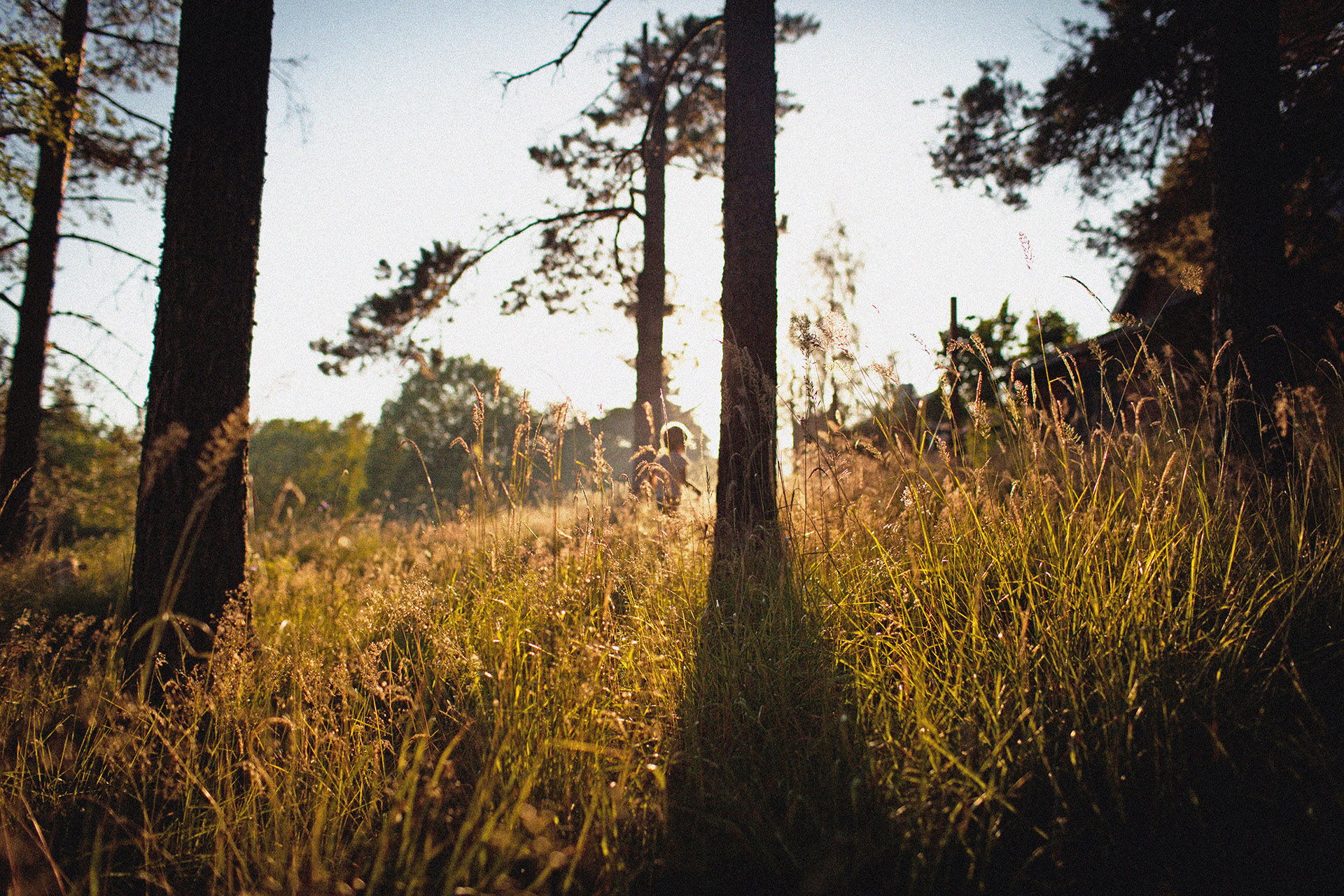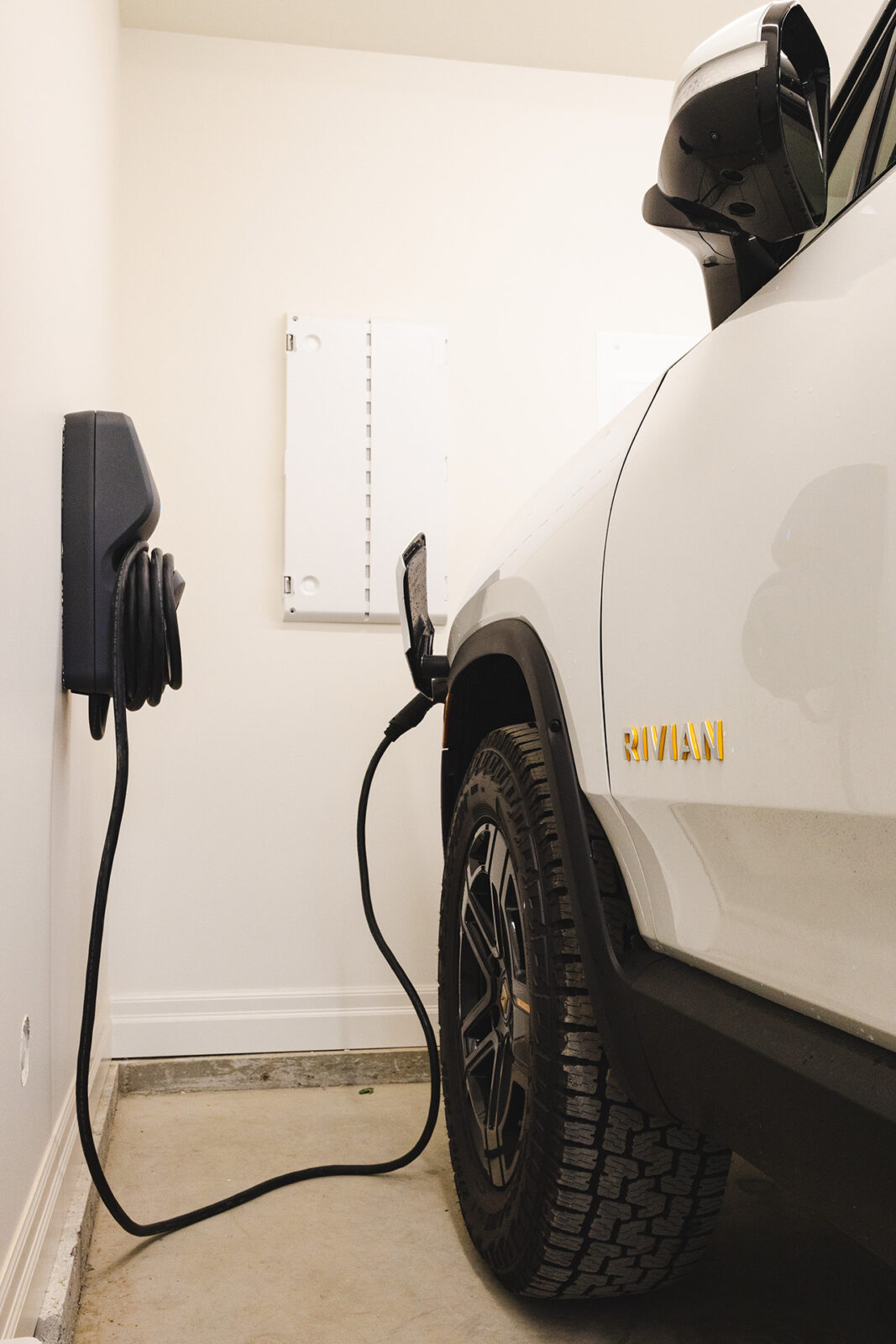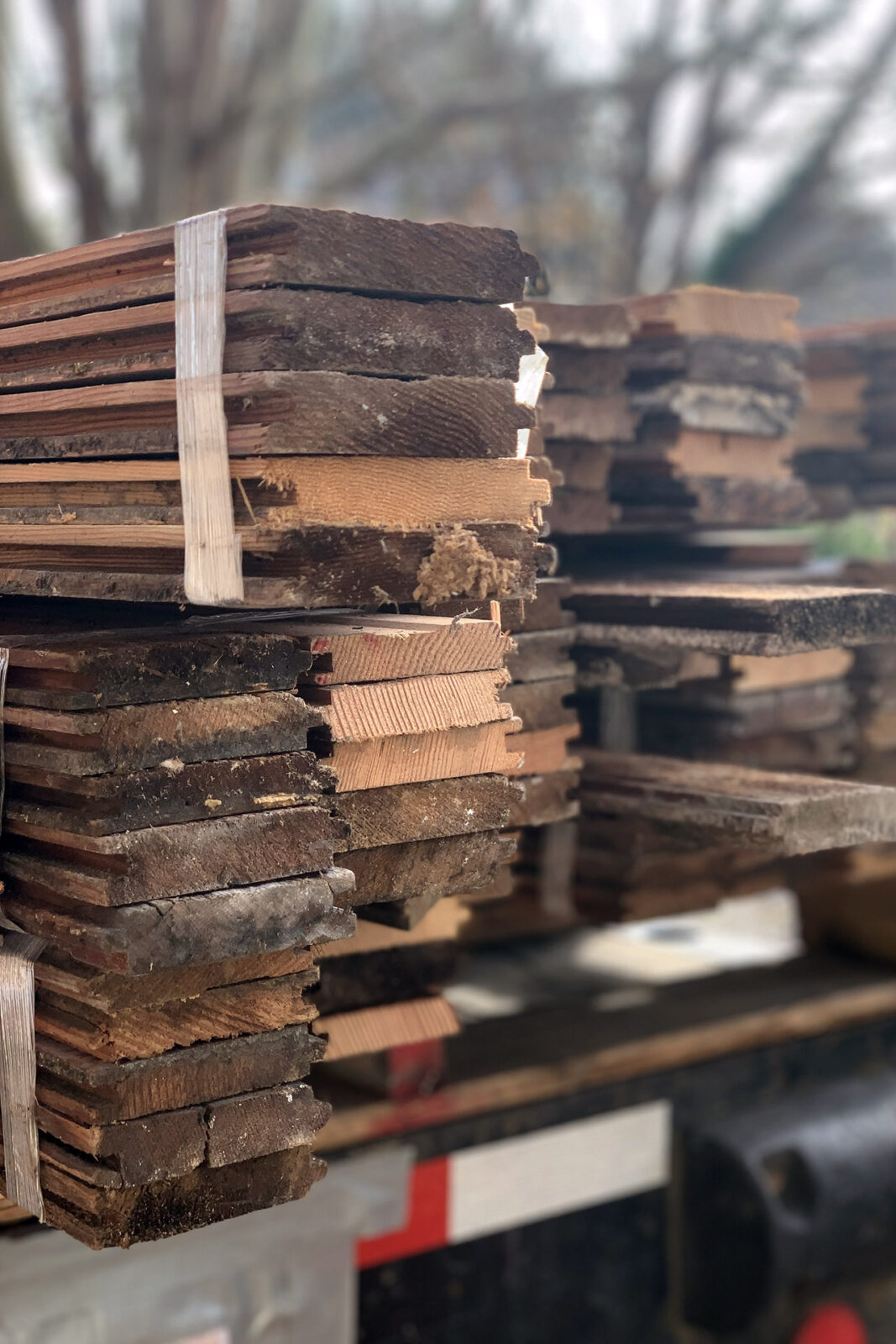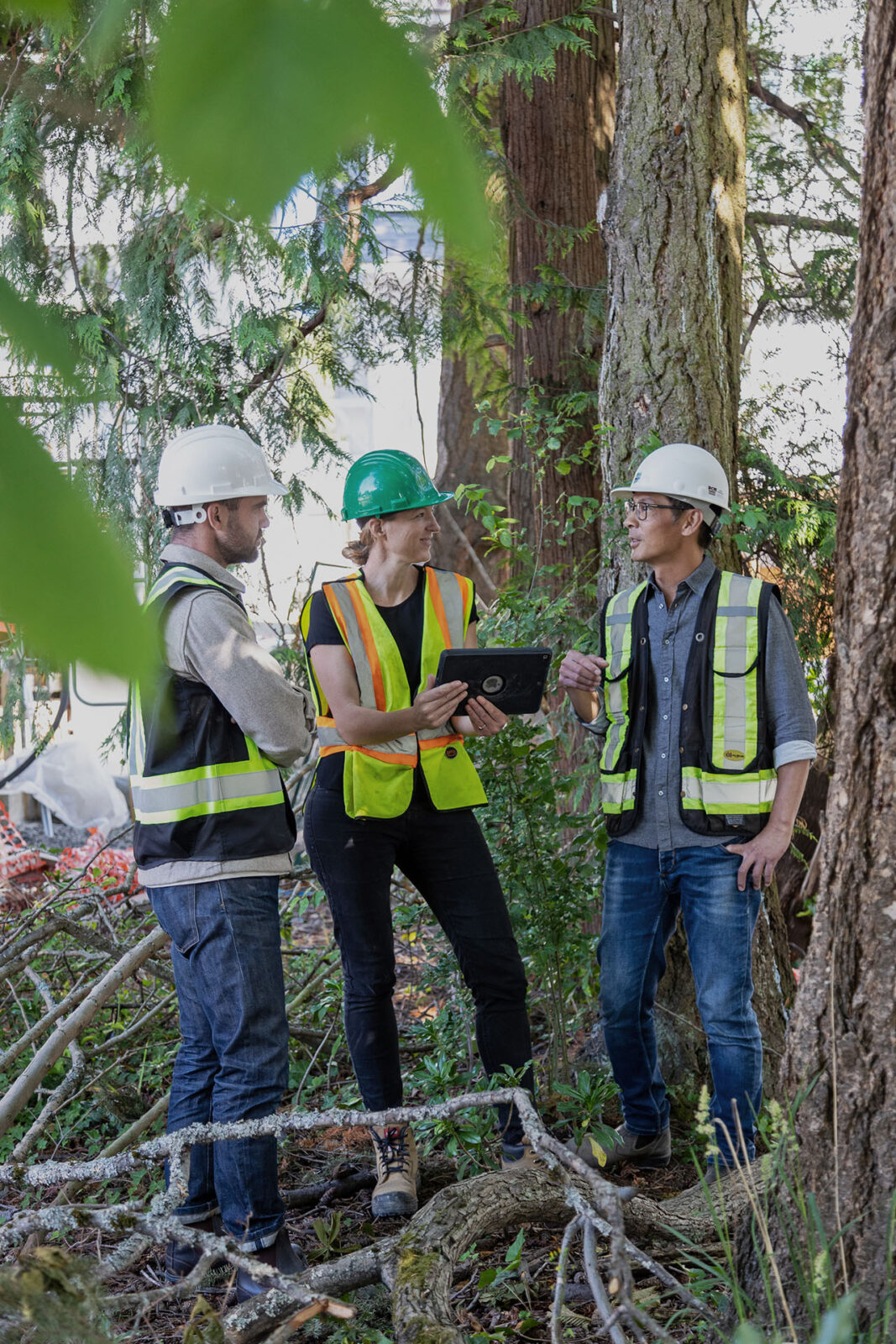
SustainabilityRethinking the status quo.
We believe townhomes can play a vital role in sustainability and climate action.
Townhomes are already a more climate-friendly housing form compared to detached housing, offering a host of environmental benefits, from improved energy efficiency to their role in creating compact, less car-reliant neighbourhoods.
Harnessing this more efficient housing type, we set out to find new ways to make our homes even more environmentally minded, by considering the complete impact that townhomes can make, from end to end.
Our approach begins at early site planning and design and continues throughout the building process, and it doesn’t end there.
We recognize the longer-term role we can play in climate action, by building homes that support more sustainable living choices for our homeowners, every day.
1.
Reducing fossil fuels
2.
Building materials & process
3.
Site Design & Environment
4.
Tree Canada Partnership

Leading in the shift away from fossil fuels.
It’s no secret that collectively, we need to reduce our reliance on fossil fuels, and we believe as homebuilders, we can play a major part in this shift.
That’s why, in 2023, we pledged 100% to eliminate fossil fuel-powered features from all new projects. Here are just a few of the ways we are reducing fossil fuels, with every new Formwell home:
- Pre-wiring for solar and electric vehicle (EV) infrastructure built-in
- High-efficiency electric heat pumps provide comfortable heating and cooling year-round
- Induction makes for a cleaner, healthier cooking method
- Cycling-friendly design features support a more car-light lifestyle
More sustainable materials, plus a better build process, equals less waste.
The full environmental footprint of homebuilding is the sum of many factors, but when you consider that nearly a third of the world’s waste and more than 40% of GHGs are from construction and related practices, it only makes sense to take action.
From our salvage and deconstruction efforts to utilizing more environmentally sensitive building technologies like CO2-capturing concrete, FSC sustainably forested lumber, and post-consumer recycled (PCR) building materials, we are continuously finding new ways to reduce our footprint, during the building process, and beyond.


Nature nurtures – people and the planet.
We work collaboratively with arborists, biologists, and landscape architects to establish communities that celebrate the many human health and environmental benefits that outdoor and naturalized spaces provide, by harnessing key site design principles including:
- Finding ways to foster human connection to nature through the establishment of, and close access to naturalized spaces
- Achieving open site greenspace minimums that exceed 50% of the total site area
- Providing a combination of private and shared outdoor spaces for every home
- Retaining existing tree canopies for CO2 reduction, cooling, and shade
- Voluntary reforestation efforts, replacing removed trees working with Tree Canada
Proudly working in partnership with Tree Canada
Tree retention is an important factor whenever we are planning a new community. But sometimes, some trees cannot feasibly be retained within a site design. In cases like this, tree replacement becomes the next best option.
To ensure that trees remain at the heart of our communities and cities, every tree removed from one of our sites is replaced with ten (10) new trees, working in partnership with Tree Canada. Trees are replanted through urban and rural reforestation projects on Vancouver Island and across British Columbia.
We are proud to lead the local industry with a corporate tree reforestation policy that greatly exceeds any municipal replacement requirements.
2,000+
TREES PLANTED TO DATE